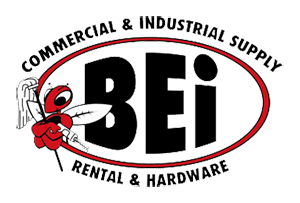
IKEA is a Swedish multinational conglomerate based in the Netherlands that designs and sells ready-to-assemble furniture, kitchen appliances, decoration, home accessories, and various other goods and home services. Started in 1943 by Ingvar Kamprad, IKEA has been the world's largest furniture retailer since 2008. The brand used by the group is derived from an acronym that consists of the founder's initials, and those of Elmtaryd, the family farm where he was born, and the nearby village Agunnaryd.
Sales promotion is one of the elements of the promotional mix. The primary elements in the promotional mix are advertising, personal selling, direct marketing and publicity/public relations. Sales promotion uses both media and non-media marketing communications for a pre-determined, limited time to increase consumer demand, stimulate market demand or improve product availability. Examples include contests, coupons, freebies, loss leaders, point of purchase displays, premiums, prizes, product samples, and rebates.
Crazy Eddie was a consumer electronics chain in the Northeastern United States. The chain was started in 1971 in Brooklyn, New York, by businessmen Eddie and Sam M. Antar, and was previously named ERS Electronics. The chain rose to prominence throughout the Tri-State area as much for its prices as for its memorable radio and television commercials, featuring a frenetic, "crazy" character played by radio DJ Jerry Carroll. At its peak, Crazy Eddie had 43 stores in four states and reported more than $300 million in sales.

A department store is a retail establishment offering a wide range of consumer goods in different areas of the store, each area ("department") specializing in a product category. In modern major cities, the department store made a dramatic appearance in the middle of the 19th century, and permanently reshaped shopping habits, and the definition of service and luxury. Similar developments were under way in London, in Paris and in New York (Stewart's).

Best Buy Co. Inc. is an American multinational consumer electronics retailer headquartered in Richfield, Minnesota. Originally founded by Richard M. Schulze and James Wheeler in 1966 as an audio specialty store called Sound of Music, it was rebranded under its current name with an emphasis on consumer electronics in 1983.

In marketing, a coupon is a ticket or document that can be redeemed for a financial discount or rebate when purchasing a product.

The Maytag Corporation is an American home and commercial appliance company owned by Whirlpool Corporation since April 2006.

Gimbel Brothers was an American department store corporation that operated for over a century, from 1842 until 1987. Gimbel patriarch Adam Gimbel opened his first store in Vincennes, Indiana, in 1842. In 1887, the company moved its operations to the Gimbel Brothers Department Store in Milwaukee, Wisconsin. It became a chain when it opened a second, larger store in Philadelphia, Pennsylvania, in 1894, moving its headquarters there. At the urging of future company president Bernard Gimbel, grandson of the founder, the company expanded to New York City in 1910.

Caldor, Inc. was a discount department store chain founded in 1951 by husband and wife Carl and Dorothy Bennett. Referred to by many as the Bloomingdale's of discounting, Caldor grew from a second story "Walk-Up-&-Save" operation in Port Chester, New York into a regional retailing giant. Its stores were earning over $1 billion in sales by the time Mr. Bennett retired in 1985, by which time Caldor was a subsidiary of Associated Dry Goods.
In marketing, promotion refers to any type of marketing communication used to inform target audiences of the relative merits of a product, service, brand or issue, most of the time persuasive in nature. It helps marketers to create a distinctive place in customers' mind, it can be either a cognitive or emotional route. The aim of promotion is to increase brand awareness, create interest, generate sales or create brand loyalty. It is one of the basic elements of the market mix, which includes the four Ps, i.e., product, price, place, and promotion.

Comet Electricals Limited, trading as Comet, is an online electrical retail chain based in the United Kingdom. The company sells consumer electronics and white goods, along with related products and services. Its predecessor, under the same brand name, pioneered the concept of the out-of-town discount warehouse in the United Kingdom.
Service Merchandise was a retail chain of catalog showrooms carrying jewelry, toys, sporting goods, and electronics. The company, which first began in 1934 as a five-and-dime store, was in existence for 68 years before ceasing operations in 2002.

Lechmere ( "leech-meer") was a Massachusetts-based chain of retail stores that closed in 1997. At the time of its closing, it had 27 stores, including 20 in New England. The chain offered electronics, appliances, and various household goods. It also had locations in New York and the Southeastern United States.

Silo was an electronics retailer operated throughout the United States between 1947 and 1995. The western region stores were known for a number of years as "Downings" in Colorado and "Appliance-TV City" in Arizona and California.

E. J. Korvette, also known as Korvettes, was an American chain of discount department stores, founded in 1948 in New York City. It was one of the first department stores to challenge the suggested retail price provisions of anti-discounting statutes. Founded by World War II veteran Eugene Ferkauf and his friend, Joe Zwillenberg, E. J. Korvette did much to define the idea of a discount department store. It displaced earlier five and dime retailers and preceded later discount stores, like Walmart, and warehouse clubs such as Costco.

Bob's Discount Furniture is an American furniture store chain headquartered in Manchester, Connecticut. The company opened its first store in 1991 in Newington, Connecticut and is ranked 12th in sales among United States furniture stores according to Furniture Today's list of Top 100 Furniture Stores. As of March 2022, the company has 150 stores in 24 US states, primarily in the Northeast, Mid-Atlantic, Midwest, and West Coast regions.
Sleepy's was a retail mattress chain with over 1,000 stores, primarily situated in the northeastern United States. The company was founded in New York City in 1931. Sleepy's was acquired by Mattress Firm in December 2015 and all stores were rebranded under the Mattress Firm name on January 1, 2017, but the website continued as an online retailer until 2018. Mattress Firm now uses the Sleepy's name for their private label mattresses.

Conn's Inc. is an American furniture, mattress, electronics and appliance store chain headquartered in The Woodlands, Texas, United States. The chain has stores in Alabama, Arizona, Colorado, Georgia, Louisiana, Mississippi, Nevada, Florida, New Mexico, North Carolina, Oklahoma, South Carolina, Tennessee, Texas, and Virginia. Within Texas Conn's has stores in Greater Houston, the Dallas/Fort Worth Metroplex, Greater San Antonio, Greater El Paso, Greater Corpus Christi, Southeast Texas, and South Texas.

Builders Emporium was a chain of home improvement stores based in Irvine, California, United States. At the time of its closing in 1993, it had 82 stores in Southern California and an additional 15 in Nevada, New Mexico, Arizona and Texas; 4,300 employees in total.

A consumer electronics store, in the United States and some other countries, is a physical store that sells consumer electronics. As technology has progressed, the United States has known variations such as phonograph dealers, radio stores, hi-fi stores, stereo stores, and audio video stores.














